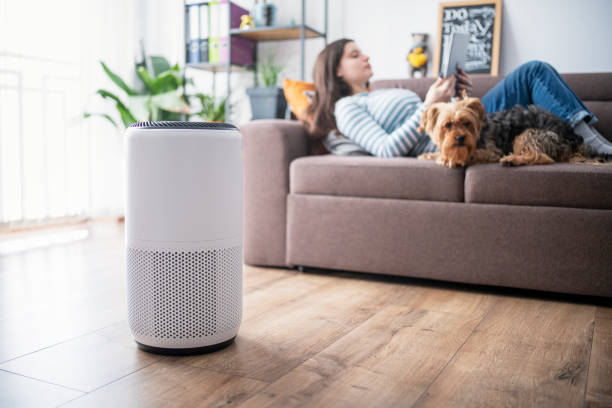Drugs and Medications
How To Know If You Have Seasonal Allergies or A Cold
Do your nose and eyes itch all the time? Do you suffer from recurring coughing and sneezing fits? It’s that time of year when allergies and colds both make an appearance, leaving us unsure which one we’re dealing with. Don’t worry, we’ve got your back. We’ll help you distinguish between seasonal allergies and a regular cold in this article so you can find the proper treatment for your symptoms.
Understanding Seasonal Allergies and the Common Cold
When your immune system reacts to pollen from trees, grass, and weeds, you have seasonal allergies, sometimes known as hay fever. A cold, on the other hand, is caused by a viral infection. While both may have symptoms such as a runny or stuffy nose, sneezing, and exhaustion, there are key differences that might help you determine which one you have.
Understanding the underlying causes of each ailment is the first step in evaluating whether you have seasonal allergies or a cold. A cold is caused by a viral infection, whereas seasonal allergies are caused by an overactive immune response to allergens such as pollen. This basic distinction in the underlying etiology of the symptoms is critical in differentiating between the two.

Symptoms of Seasonal Allergies
Seasonal allergies can show in a variety of ways, and the symptoms can be excruciating. Itching, which can affect the nose, eyes, and throat, is one of the most common symptoms. To ease the irritation, you may find yourself continually rubbing your eyes or itching your nose. Seasonal allergies can also cause a runny or stuffy nose, sneezing bouts, and watery eyes. These symptoms can range from mild to severe and depend on the individual and the allergen in question.
Seasonal allergies are also characterized by allergic conjunctivitis, which is an inflammation of the conjunctiva, the thin layer of tissue that covers the white area of the eye. This might result in irritation, itching, and excessive tearing. Seasonal allergies are likely if you have these symptoms primarily at certain periods of the year, such as spring or fall, when specific allergens are common.
Symptoms of the Common Cold
The common cold is an infection caused by a virus that mostly affects the nose and throat. A cold is caused by a viral invasion of the body, as opposed to seasonal allergies, which are triggered by allergens. A cold usually begins with a painful throat, followed by a runny or stuffy nose. Sneezing, coughing, and a general sensation of weariness or malaise are also possible.
The presence of a low-grade fever, which is usually absent in cases of seasonal allergies, distinguishes the common cold. This slight rise in body temperature indicates that your immune system is actively combating the viral infection. If you have a temperature along with your symptoms, you most likely have a cold rather than seasonal allergies.

Key Differences Between Seasonal Allergies and the Common Cold
While seasonal allergies and the common cold have some symptoms in similar, there are a few significant differences that can help you distinguish between the two. The duration of the symptoms is one of the most important distinctions. Seasonal allergies can continue for weeks or months, depending on the allergen and the person’s sensitivity. A cold, on the other hand, normally goes away within a week or two.
The consistency of symptoms is another distinguishing element. Seasonal allergies frequently cause persistent symptoms that are very constant throughout the day. You may awaken with a stuffy nose and itchy eyes, and these symptoms may last all day. Cold symptoms, on the other hand, tend to evolve with time. As the infection progresses, you may experience a sore throat, a runny nose, and a cough.
Causes of Seasonal Allergies and the Common Cold
Understanding the causes of seasonal allergies and the common cold might help you differentiate between the two. Exposure to allergens such as pollen, mold spores, or pet dander causes seasonal allergies. These allergens cause an immunological reaction, resulting in symptoms such as itching, sneezing, and congestion.
The common cold, on the other hand, is caused by viral infections. A cold can be caused by a variety of viruses, including rhinoviruses, coronaviruses, and respiratory syncytial viruses. These viruses are very infectious and can be spread through respiratory droplets or contact with contaminated surfaces. When you come into contact with a cold virus, it infects the cells in your nose and throat, causing inflammation and the typical cold symptoms.

Diagnosing Seasonal Allergies and the Common Cold
It can be difficult to tell whether you have seasonal allergies or a cold because the symptoms are identical. There are, however, a few clues that can help you distinguish between the two. If your symptoms occur mostly during certain seasons, such as spring or fall, and you have a personal or family history of allergies, seasonal allergies are more likely.
However, if you have a fast onset of symptoms, especially after being exposed to someone who has a cold, you are more likely to have a common cold. Furthermore, the presence of a low-grade fever can support the diagnosis of a cold.
If you are unsure about the source of your symptoms, it is always preferable to seek the advice of a healthcare professional. To discover if you have allergies, they may conduct specific testing such as skin prick tests or blood tests. A cold is often diagnosed based on your symptoms and a physical examination.
Treatment Options for Seasonal Allergies
Once you’ve determined that you have seasonal allergies, there are numerous therapy choices to help you feel better. Over-the-counter antihistamines, which can help relieve itching, sneezing, and congestion, are usually the first line of defense. Nasal corticosteroids are also often used to decrease inflammation and relieve congestion in the nasal passages.
If your symptoms are severe or are not sufficiently controlled by over-the-counter drugs, your doctor may prescribe stronger antihistamines or suggest immunotherapy. Immunotherapy, commonly known as allergy shots, can help your immune system desensitize to certain allergens, lowering the severity of your allergic reactions over time.
Treatment Options for the Common Cold
The primary goal of treating a common cold is to manage the symptoms while also supporting your immune system’s attempts to fight off the viral infection. A sore throat, headache, or fever can be relieved with over-the-counter pain medicines such as acetaminophen or ibuprofen. Nasal decongestants or saline nasal sprays can help relieve nasal congestion temporarily.
Getting enough of rest and drinking plenty of water might also help you recover from a cold. Antibiotics are ineffective against viral illnesses, thus they should not be used to treat a cold unless expressly prescribed by your healthcare professional.

Prevention Tips for Seasonal Allergies and the Common Cold
Prevention is essential in the treatment of both seasonal allergies and the common cold. To lessen your exposure to allergens, keep windows closed during high pollen seasons, use air purifiers, and clean your home on a regular basis to eliminate dust and pet dander. If you know you are allergic to certain allergens, such as grass or ragweed, try to avoid outdoor activities during peak allergy times.
Hand cleanliness is critical for preventing the spread of cold viruses. Wash your hands frequently for at least 20 seconds with soap and water, especially after coughing or sneezing, and avoid close contact with people who have a cold. When coughing or sneezing, cover your mouth and nose with a tissue or your elbow to help prevent the spread of cold viruses.
Conclusion: Seeking Medical Advice and Managing Symptoms
Distinguishing between seasonal allergies and a common cold has proven to be quite challenging for me due to the overlapping symptoms. However, I’ve come to understand that delving into the underlying causes, duration of symptoms, and consistency of my reactions provides valuable insights. Whenever I’m unsure about the cause of my symptoms, I always opt to consult a healthcare professional for an accurate diagnosis.
Once I’ve identified whether I’m dealing with seasonal allergies or a cold, I can then explore appropriate treatment options to manage my symptoms effectively. Additionally, I’ve learned that taking preventive measures can significantly help reduce my risk of developing seasonal allergies or catching a cold. By being proactive and seeking medical advice when needed, I can find the relief I need and enjoy a healthier, symptom-free life.


